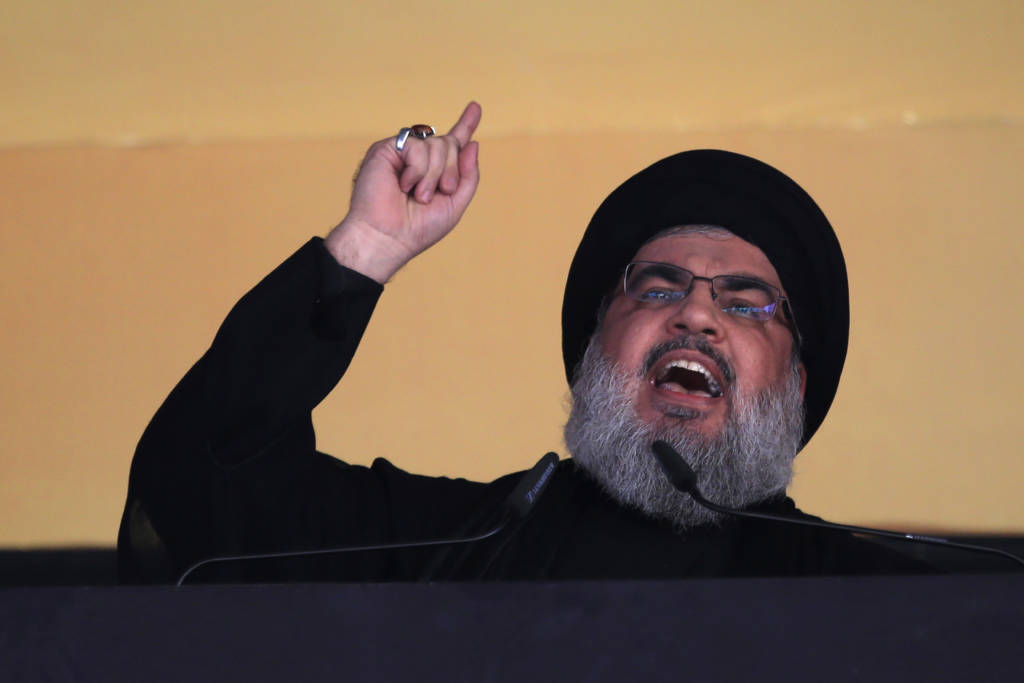Since the Second Lebanon War in 2006, arch-terrorist Hassan Nasrallah has lived in a Beirut bunker, while routinely threatening to destroy Israel.
By TPS
“There is no doubt” that Hezbollah’s Secretary-General Hassan Nasrallah is scared following the US killing of Iranian General Qasem Soleimani in 2020 and the killing of Hezbollah’s military leader Imad Mughniyeh in Damascus in 2008, Amos Yadlin, a former general in the Israeli Air Force (IAF) and former head of the IDF Military Intelligence Directorate, explained.
Nasrallah claimed earlier this week that he was being hunted by the US and Israel and threatened Israel with Hezbollah’s arsenal, which he said has doubled in size in the past year.
“The number of precision missiles at the resistance’s disposal has now doubled from what it was a year ago. Any target across the area of occupied Palestine that we want to hit accurately — we are able to hit accurately,” Nassrallah said in an interview with the Hezbollah affiliated al-Mayadeen news site.
Hezbollah is estimated to have some 250,000 rockets and missiles, some of them with long-range and accurate strike capabilities.
Since 2006, following the Second Lebanon War, Nasrallah has been in hiding in a bunker in Beirut.
“Nasrallah in his speech reminded us of the threat from the north and was trying to exert a psychological pressure on us, as usual,” he said.
“He is a champion in psychological warfare, and knowing that his speech will receive broad coverage in Israel, he tried to manipulate,” the former general told Israel Radio on Monday.
On Nasrallah’s threats, he said that Hezbollah can attack Israel but will lose “and that why he [Nasrallah] has been very, very careful since 2006.”
Yadlin estimated that while Hezbollah has the capability to hurt Israel, Nasrallah, in his strategic thinking, is avoiding a confrontation with Israel.
As an example, he reminded of Nasrallah’s threat to avenge the death of a Hezbollah operative allegedly killed in an Israeli strike in July, a threat he has tried twice to carry through with and failed. He is seeking an attack that will not draw Israel into a full-blown confrontation because he is afraid of Israel’s response.
“He knows there is a point after which Israel will cause him to regret [his actions], like he did in 2006,” said Yadlin.

